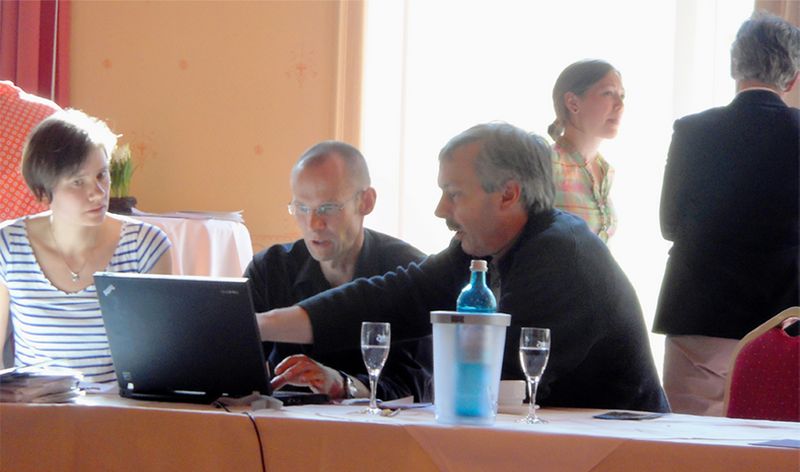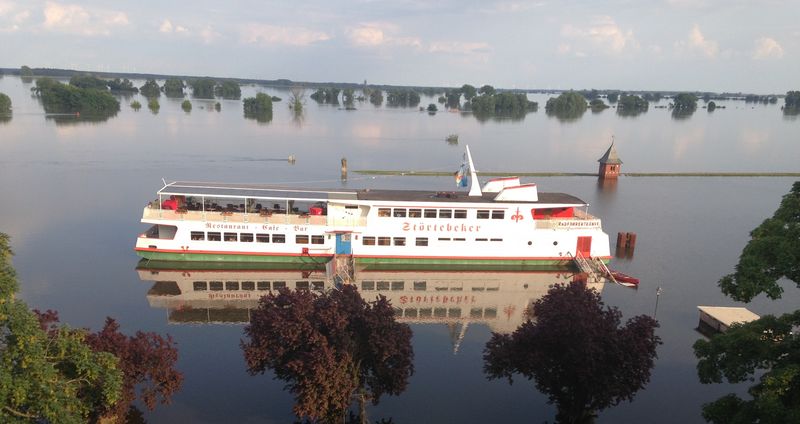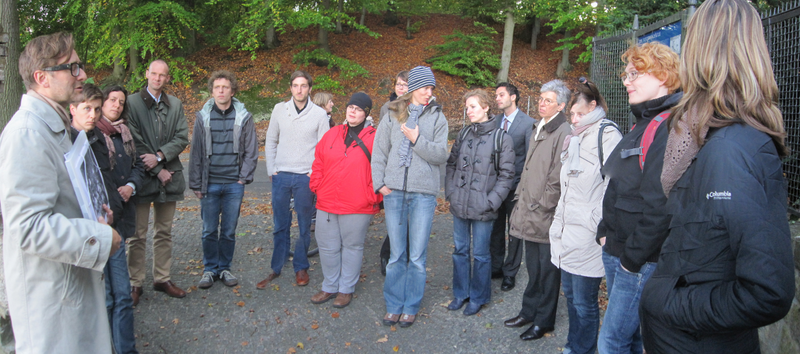Meetings project team
3rd Project meeting in Tangermünde hosted

Project team discussed current works and informed to sustainable Land use at the Elbe wetlands
For the annual project meeting, the project team CC-LandStraD met in Tangermünde from June, 11-13, 2013. The scientists intensively discussed the current works and overlapping questions, e. g., definition of the established strategies, sector specific aspects and analyses of measures. Further the continuing joint procedure and the time schedule for the next months, as well as the involvement of regional and national stakeholders during the course of the project were adjusted.
Beside the questions on CC-LandStraD, the recent Elbe flood and the overflow of the region Elb-Havel-Winkel were designated topics of the project meeting. Questions on this situation and on sustainable land management with iterate high-water situations and the consequences for flora and fauna were answered very competently by Dr. Peter Neuhäuser. Dr. Neuhäuser manages the NABU-Elbecenter in Tangermünde-Buch. He reported on his work at the NABU-Center for Ecology, Nature and Environment Protection and the sustainable land management by extensive farming with large pasture animals, e.g., Galloway-cattle, Konik horses and water-buffalo.

Project team discusses first interims results

Intensive exchange at the second annual meeting of the Joint project CC-LandStraD in Berlin-Schwanenwerder
The CC-LandStraD project partners met on October 9-10, 2012 for their second annual meeting at the Evangelische Bildungsstätte Berlin-Schwanenwerder. About 20 scientists compared notes on the work statusof the different sub-projects. Interim results were presented and discussed, e.g., interfaces developed for the CC-LandStraD model network or findings of the interviews from the national and regional stakeholder processes. Furthermore the team reconsidered the scenario concept of CC-LandStraD and the interaction of the scenarios with the module coordination GLUES. Especially the helpful comments of Prof.Dr. Stefan Siedentop provided the project team with valuable suggestions for the coming working periods. Professor Siedentop is member of the scientific board of CC-LandStraD and took part at the annual meeting.
Elmar Kilz, the chief of the forestry district Grunewald, described the conflicts of interest between forest use and other uses in big-city areas. He emphasized the historical character of the forest use in Berlin and the special characteristics and priority functions of forests as recreational areas. Further he pointed out the cooling effect of forests for the big-city heat islands (Hitzeinseln). The forestry district manages about 6.000 ha forest and deals with the topic climate change in their daily affairs. For instance, the forestry districts in Berlin have realized an ambitious forestry modification program. The increased occurrence of the oak procession moth is seen as a climate change indicator.
During a walkabout Architect Heinz Jirout explained very illustrative and informative the specific land use of the Island Berlin-Schwanenwerder, the usage conflicts of different owner interest and other actors involved from the historical and current perspective.

